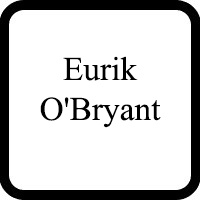Oakley Bankruptcy & Debt Lawyer, California
Sponsored Law Firm
-
 x
x

Click For More Info:
-
Fitzgerald & Campbell, APLC
400 N. Tustin Avenue Suite 401 Santa Ana, CA 92705» view mapBankruptcy & Debt Lawyers Who Solve Serious Problems
We are a motivated, respected, and experienced law firm that provides affordable services that get results.
800-732-9061
Eurik O'Bryant
✓ VERIFIEDBankruptcy & Debt, Wills & Probate, Intellectual Property, Landlord-Tenant
Eurik is a shareholder at Sekhon & O’Bryant specializing in the practice of contested trust and estate matters, probate administration, commercial l... (more)
Simran Singh Sekhon
Business, Bankruptcy, Trademark, Contract, Wills & Probate
Simran Sekhon is a practicing lawyer in the state of California.
Jim Gerhart Price
Commercial Real Estate, Consumer Rights, Commercial Banks, Collection, Bankruptcy
Status: In Good Standing
Douglas John Hartsough
Power of Attorney, Other, Real Estate, Credit & Debt
Status: In Good Standing Licensed: 36 Years
Donald Lee Cox
Employee Rights, Banking & Finance, Credit & Debt, Medical Malpractice
Status: In Good Standing
Thomas D. Hathaway
Family Law, Divorce & Family Law, Bankruptcy & Debt, Divorce
Status: In Good Standing Licensed: 31 Years
Corrine Clementine May Bielejeski
Immigration, Estate, Credit & Debt, Bankruptcy
Status: In Good Standing Licensed: 18 Years
Adam Blair Corren
Workers' Compensation, Bankruptcy, Personal Injury, Commercial Real Estate, Business
Status: In Good Standing Licensed: 28 Years
Michael Robert Tener
Litigation, Federal Appellate Practice, Contract, Bankruptcy
Status: In Good Standing
 Gregory Fitzgerald Santa Ana, CA
Gregory Fitzgerald Santa Ana, CA AboutFitzgerald & Campbell, APLC
AboutFitzgerald & Campbell, APLC Practice AreasExpertise
Practice AreasExpertise


